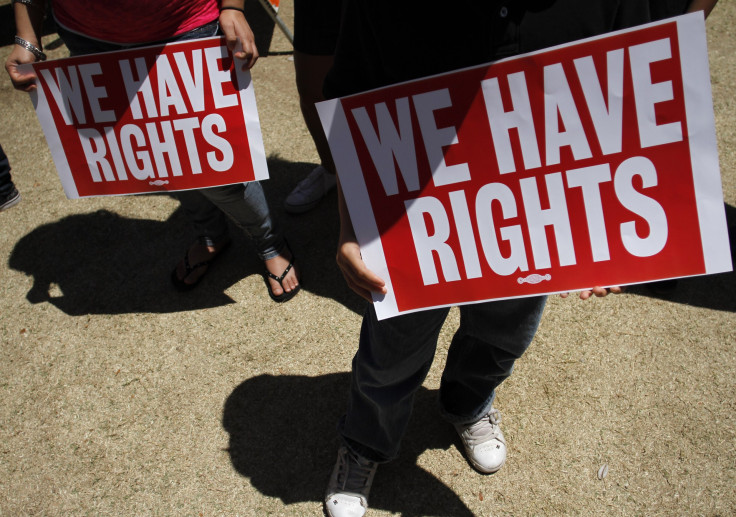Hispanics In America: Latinos' Optimism About Racism Tied To History, Could Change In Future

Hispanics are consistently positive about race relations in the United States because of their inherent optimism and personal experiences, but that could change. Academic experts predict a younger generation of Hispanics will grow ambivalent as they see and experience discrimination firsthand.
For now, despite Americans' overall dark outlook on racism after the police killings of black men in Missouri, New York and other parts of the nation, 51 percent of Hispanic respondents to an NBC News/Wall Street Journal survey said they felt good about race relations. Compared with 40 percent of whites and 35 percent of blacks who felt the same, Hispanics were the most optimistic group in the survey, which was released Wednesday.
This can largely be attributed to the makeup of the Latino demographic, roughly 36 percent of which is foreign-born, according to academic experts. Immigrants don't have the experience seeing and dealing with racism and civil rights in the U.S. as most Americans do, Nestor Rodriguez, a sociology professor at the University of Texas at Austin, said. They think race relations are "less of a structural feature and more about individuals who have not done enough to improve their situation," Rodriguez said.
Immigrants also tend to be more optimistic in general. Coming to the U.S. inherently gives people a positive outlook, Van Tran, an associate sociology professor at Columbia University in New York, said. Even though they may be aware of the nation's history of slavery and segregation, they feel certain that everything will work out.
But those feelings can change over time, especially as Hispanics experience "racialization" where society stereotypes them. As they start seeing how Americans treat them, Tran said, their views will become more pessimistic. Second- and third-generation immigrants may already be undergoing this transition.
Latino-American citizens' views on race relations may prove more complicated if future survey data is more specific. Tran said further delineation of heritage is needed to truly examine these trends. Light-skinned Latinos are likely much more optimistic about racism than dark-skinned Latinos, he said. "Their day-to-day experiences would inform their views on race relations. Dark-skinned Latinos are often treated very similarly as African-Americans."
Other details would emerge if survey responses about racism were broken down by specific ethnicities. For example, Hispanic-black relations tend to be worse than Hispanic-white and Hispanic-Asian relations, Tran said, adding that this is partly because Hispanics often compete with black people for low-wage jobs.
"There's tremendous diversity behind that number," Tran said of the poll data. "Unpacking that a bit more would give you a more nuanced sense of what's going on."
© Copyright IBTimes 2024. All rights reserved.






















